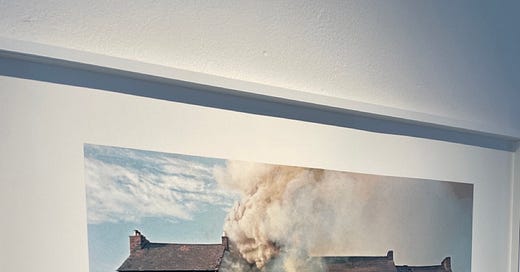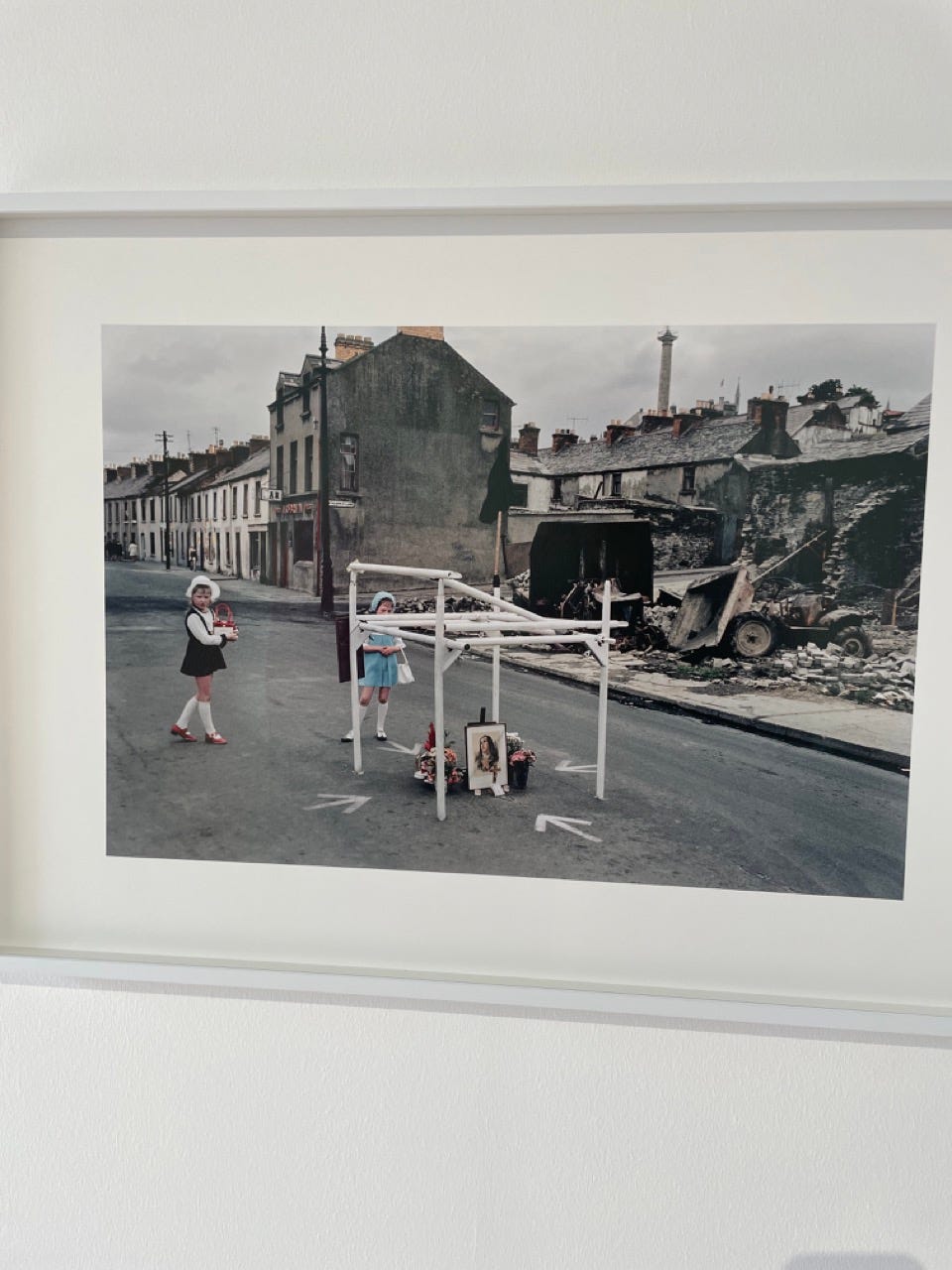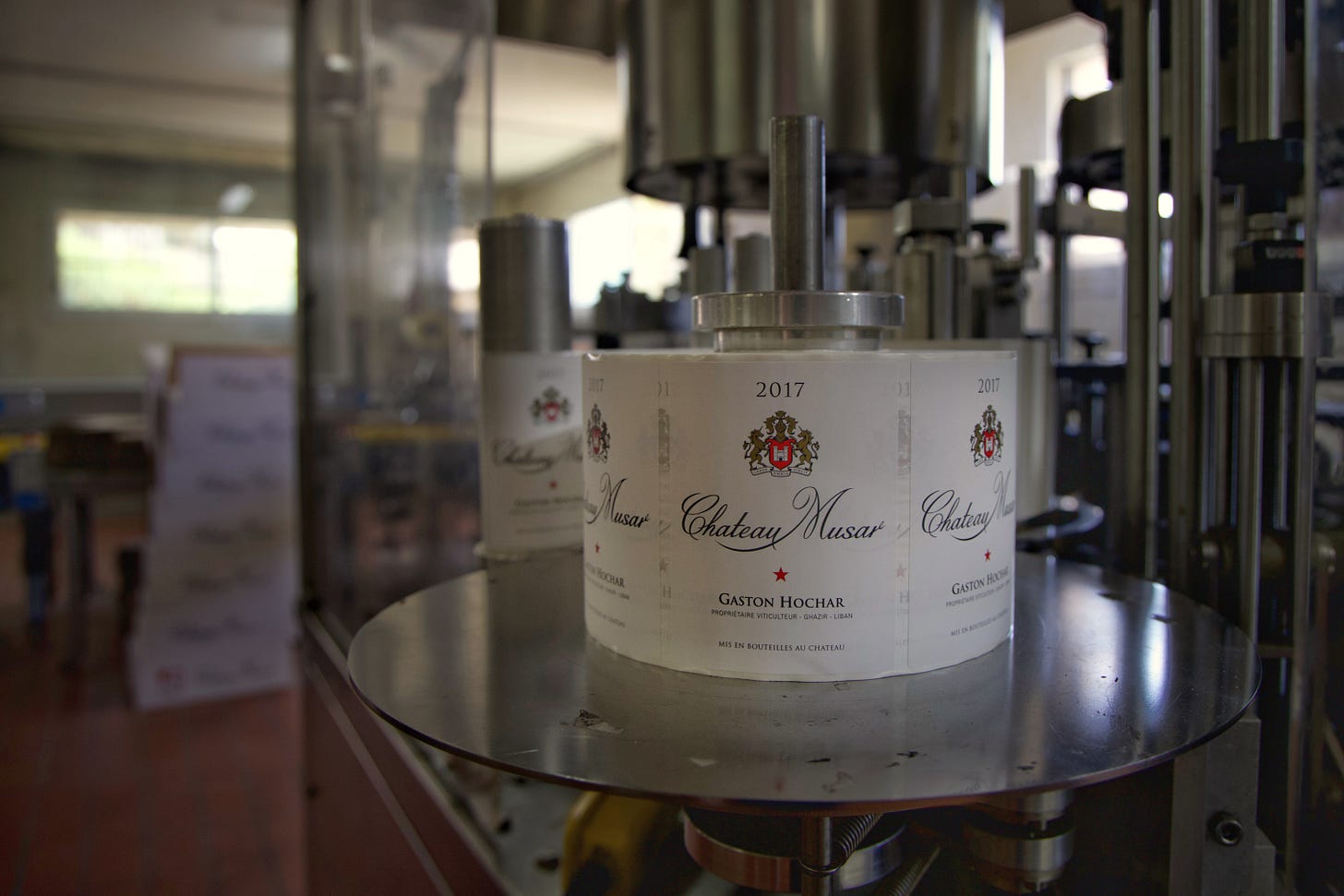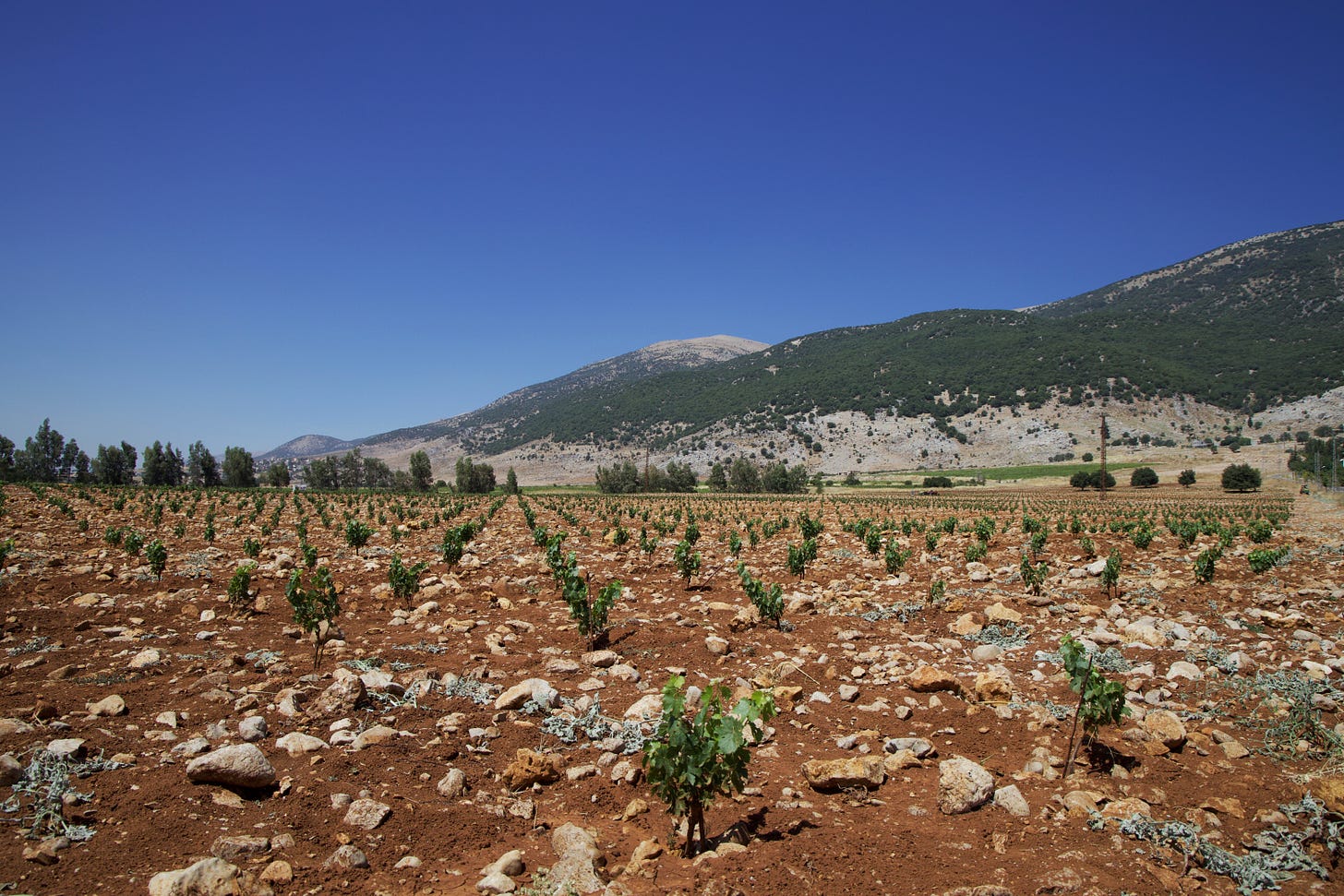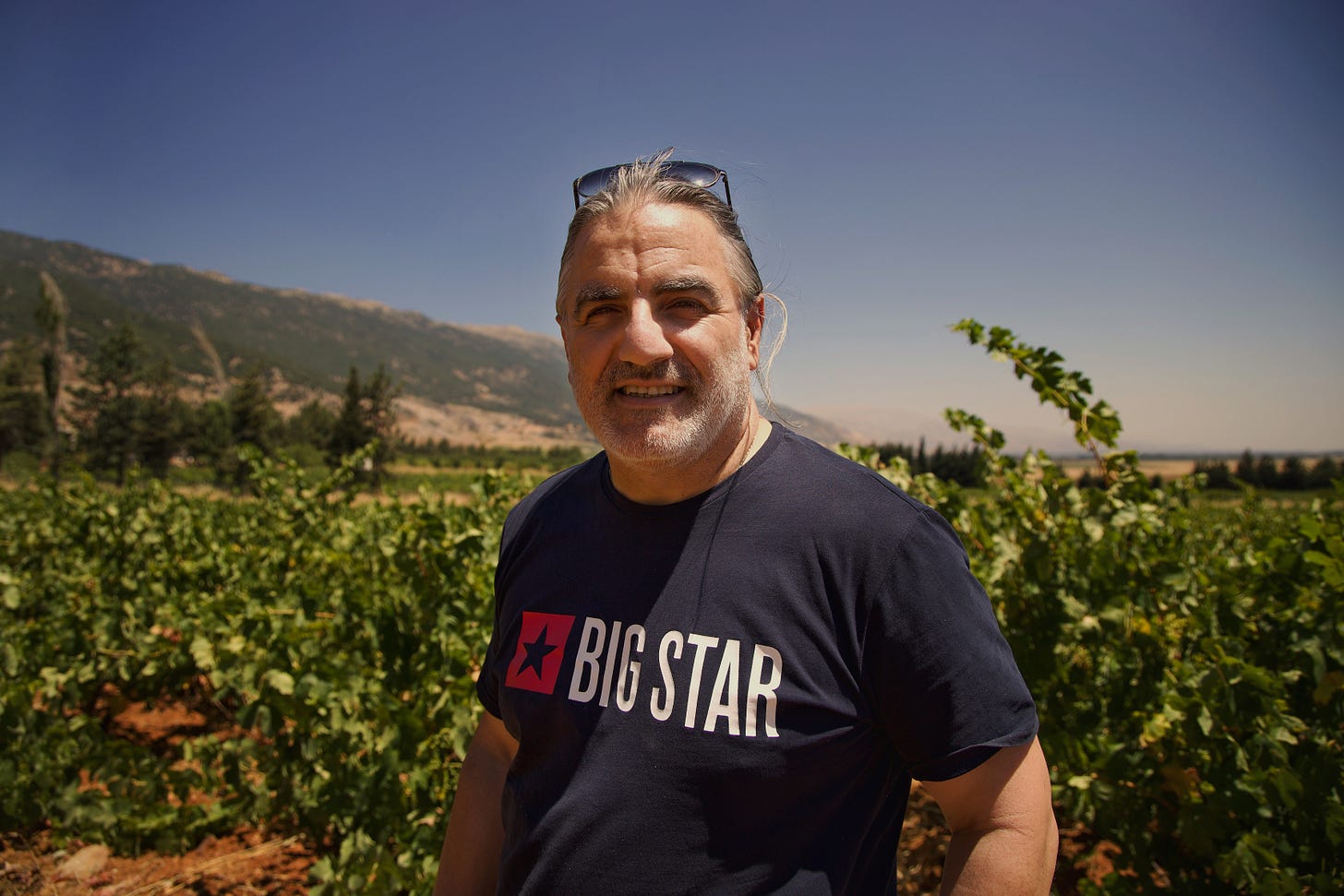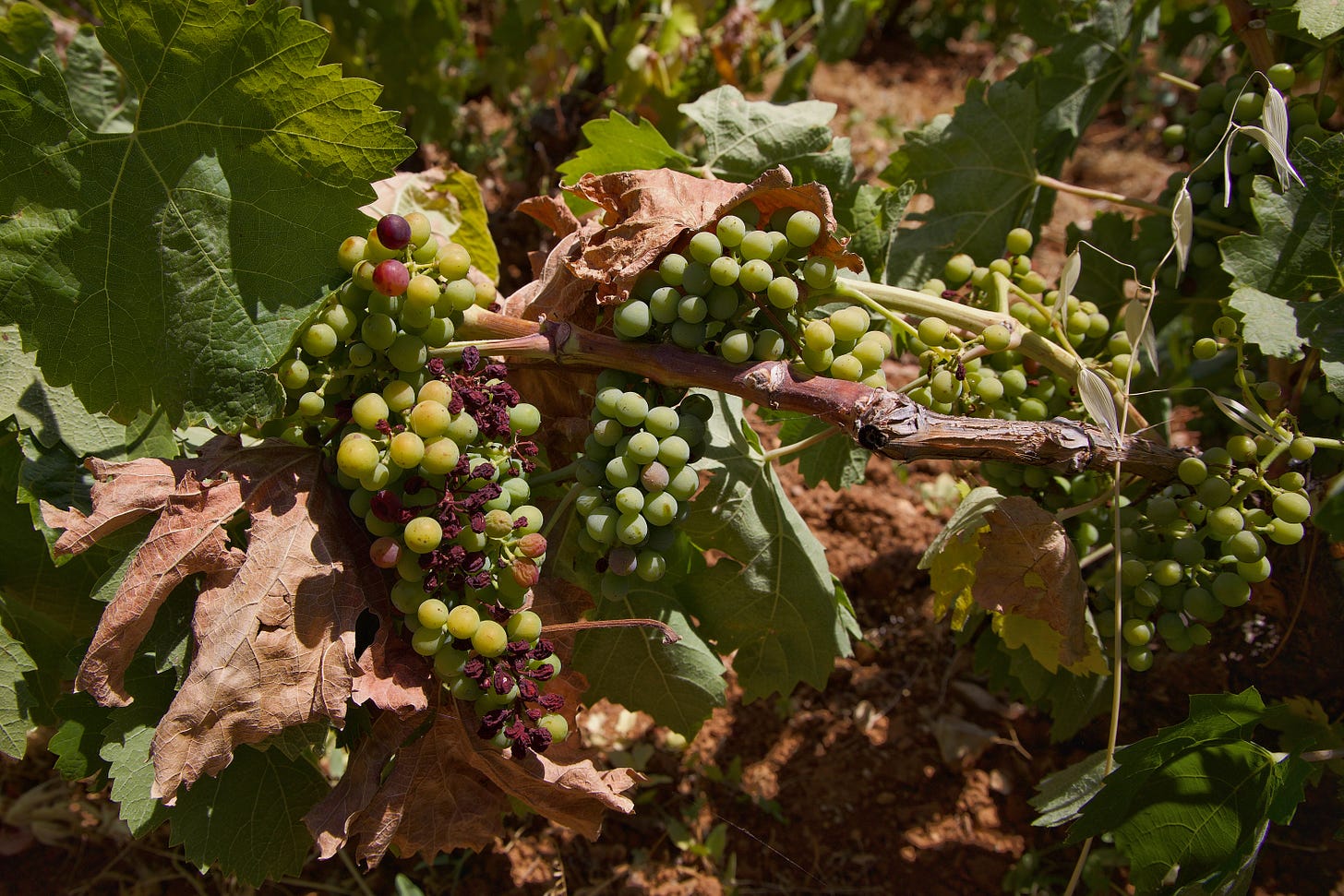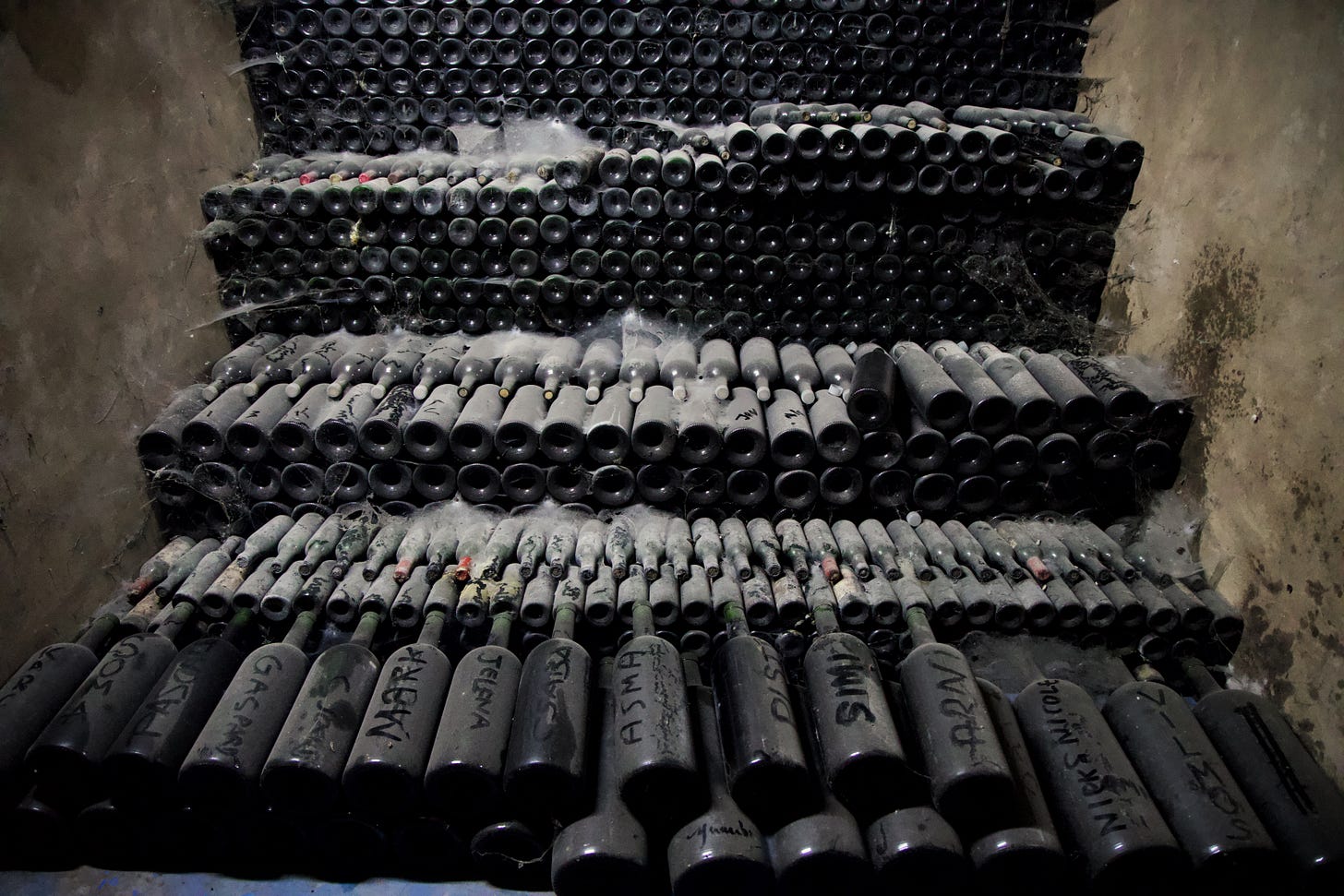The Troubles seen through the lens of a Japanese photographer / Lebanon's wartime winemakers
Hello,
This week, I visited the Photo Museum of Ireland to see the exhibition of Akihiko Okamura’s work covering The Troubles entitled ‘The Memories of Others’.
One of Japan’s most celebrated photojournalists with an interest in post-colonial history, Okamura moved to Wicklow in 1969 after covering the Vietnam war. He regularly travelled to Northern Ireland to cover the Troubles but (until now) his collection of photos seems to have gone relatively unnoticed in Ireland, where he lived for 20 years.
The exhibition is well worth your time if you’re in Dublin before 6 July.
In honour of my uncle Rupert who always talks about how much he loves Chateau Musar wine, I’ve written a piece below about the famous winemaker and their vineyards in the Bekaa valley.
Two pieces worth your time this week:
All the best,
Hannah
The red, rock-strewn soil of the vineyard contrasts with the nearby wheat fields that carpet much of Lebanon’s Bekaa valley. In the distance are the lightly snow-capped Haramoun mountains that straddle the border with neighbouring Syria.
For centuries this region - with its high altitude, mild winters and long summers - has attracted winemakers. While, in more recent decades, its strategic location near the porous border with Syria has enticed the Iran-back militant group Hezbollah to take control of this fertile valley where most of Lebanon’s wine is produced.
The 2006 war between Hezbollah and Israel broke out as the annual grape harvest was due to begin, says Tarek Sakr, the technical director of the Lebanese winemaker Chateau Musar which owns the vineyard we’re standing in. Israeli rockets struck the Bekaa Valley on several occasions in 2006 but Sakr feared only for the ripened Chardonnay grapes that would quickly rot if left on their stems.
With drones flying overhead and burnt-out cars lying by the wayside, Sakr drove to a nearby village and rang the bell of a local church to gather a team for the wartime harvest. With military speed, the workers handpicked the grapes and stowed them on trucks to transfer to the Chateau Musar winery for fermentation, blending and bottling.
When I asked if the risk had been strictly necessary, Sakr gestured to some young vines laden with small berries. “They are my children,” he replies.
“You have to be resilient, you have to continue to work whatever the consequences,” says a man willing to risk everything for a dry and medium-bodied Chardonnay.
Fortunately for Sakr and his team, the harvest was over when the latest war between Hamas and Israel erupted in October. The bloody conflict quickly spread to Lebanon’s southern border, triggering near-daily exchanges of fire between Israeli forces and Hezbollah - an ally of Hamas.
Earlier this year Israeli rockets struck the Bekaa valley, targetting Hezbollah’s weapons depots. So far none of the attacks have been near the vineyards but it’s enough to frighten off visitors.
With a destabilising conflict on its southern border, a failed banking system and a weak government in Beirut, there is no shortage of problems for winemakers in Lebanon to grapple with. But an even more existential one looms over the wine industry - one of the few exporting sectors in the struggling and import-reliant Lebanese economy.
The damaging fallout from climate change means that summer is lasting longer in Lebanon, with the hottest days reaching ever higher temperatures and leading to frequent wildfires which are barely kept at bay by an ill-resourced civil guard.
Heat waves once happened every ten years, says Sakr but are now occurring every 2-3 years, and destroying up to 10 per cent of his grape crop. Globally, land suitable for growing wine could halve by 2050, if current levels of carbon emissions do not decrease.
Winemakers in Bekaa have adapted by focusing on heat-loving grapes such as Cinsault, Syrah and Tempranillo.
Fans of Lebanese Cabernet Sauvignon may be sorry to learn that it's a victim of the hotter climate. With a small berry, the grapes easily dry up in extreme heat leaving little but overly sweetened and highly alcoholic resin more suited for molasses than fine red wine.
White wine too is a casualty of increasing temperatures, with its acidity and crisp flavour evaporating in the heat that pushes grapes too quickly through their natural growth cycle.
The rainy season in Lebanon has also become shorter and over the next two decades, annual rainfall in Lebanon is estimated to fall by 10 to 20 per cent. Some winemakers use irrigation to manage the now frequent droughts but the watering technique is seen as dishonest by natural winemakers like Sakr, who says irrigation dilutes the flavour of wine which should reflect yearly climatic variations.
“Honest, truthful wine should reflect what’s happened during the year,” says Sakr philosophically. But with the region hotter and increasingly unstable, it’s hard to know what this year’s vintage from Lebanon will taste like.

